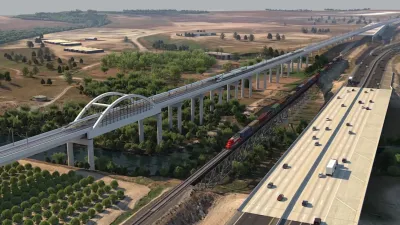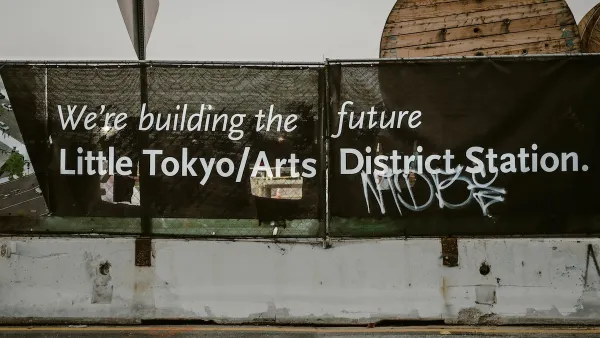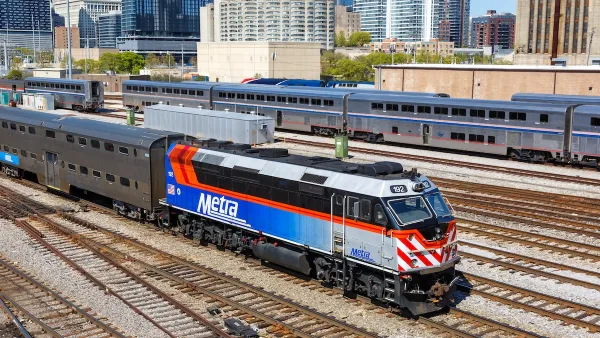A new report suggests that an overreliance on external consultants by U.S. transit agencies and other government entities is hollowing out the public sector and raising the costs of transit projects.

The high cost of building U.S. transit projects has been a hot topic as of late, even as transit services in most American cities remain inadequate. Writing in Slate, Henry Grabar outlines a new report from New York University’s Transit Costs Project that offers recommendations for how to bring down the cost of transit projects, “make it possible for America to build big again,” and rebuild faith in public transit and, perhaps, the public sector in general.
“According to authors Eric Goldwyn, Alon Levy, Elif Ensari, and Marco Chitti, there’s a lot going wrong with American transit projects—more on this in a moment—but many of the problems can be traced to a larger philosophy: outsourcing government expertise to a retainer of consultants.” From New York to California, consultant fees have consumed massive amounts of transit funding. Meanwhile, the report’s authors argue that relying so heavily on external support means agencies don’t hold on to institutional knowledge and skills that could be applied to future projects.
It’s that lack of institutional know-how, of which consultants are both a symptom and a cause, that really hampers projects. The lack of a good in-house team, for example, leads to farming out so-called ‘design-build’ contracts, which ultimately produces more expensive projects by offloading risk to contractors, who bid accordingly.
The report points out that the reliance on consultants isn’t the only factor driving up costs. “Transit routes picked at the ballot box are bound to be worse than those drawn up by experts; transit’s role as a ‘job creation’ bonanza doesn’t create incentives to be particularly efficient.” But the report draws attention to the larger lesson, also laid out in a forthcoming book by Mariana Mazzucato and Rosie Collington: “consultants have hollowed out government functions well beyond transit construction.” Author John Dilulio makes a similar argument, arguing that the shift to contractors “has created a federal apparatus that’s at once bigger, less efficient, and less accountable.”
FULL STORY: Consultants Gone Wild

Analysis: Cybertruck Fatality Rate Far Exceeds That of Ford Pinto
The Tesla Cybertruck was recalled seven times last year.

National Parks Layoffs Will Cause Communities to Lose Billions
Thousands of essential park workers were laid off this week, just before the busy spring break season.

Retro-silient?: America’s First “Eco-burb,” The Woodlands Turns 50
A master-planned community north of Houston offers lessons on green infrastructure and resilient design, but falls short of its founder’s lofty affordability and walkability goals.

Test News Post 1
This is a summary

Analysis: Cybertruck Fatality Rate Far Exceeds That of Ford Pinto
The Tesla Cybertruck was recalled seven times last year.

Test News Headline 46
Test for the image on the front page.
Urban Design for Planners 1: Software Tools
This six-course series explores essential urban design concepts using open source software and equips planners with the tools they need to participate fully in the urban design process.
Planning for Universal Design
Learn the tools for implementing Universal Design in planning regulations.
EMC Planning Group, Inc.
Planetizen
Planetizen
Mpact (formerly Rail~Volution)
Great Falls Development Authority, Inc.
HUDs Office of Policy Development and Research
NYU Wagner Graduate School of Public Service




























